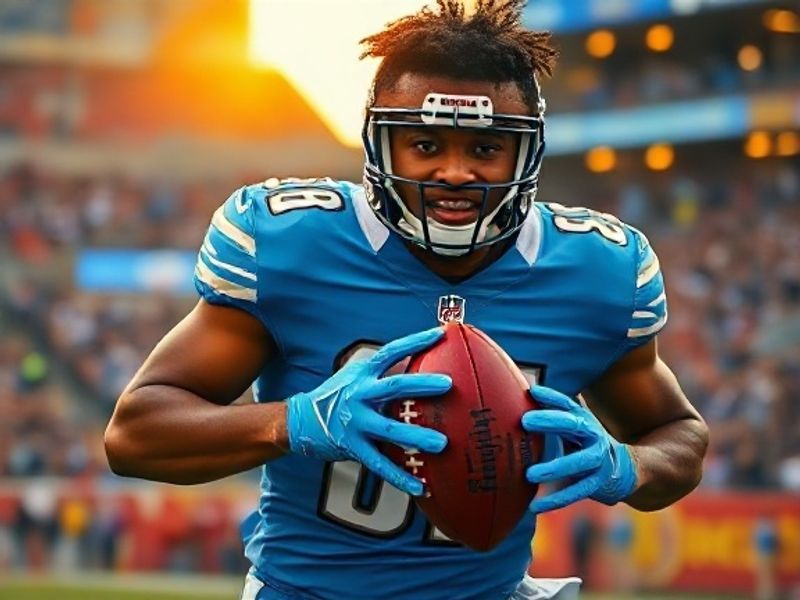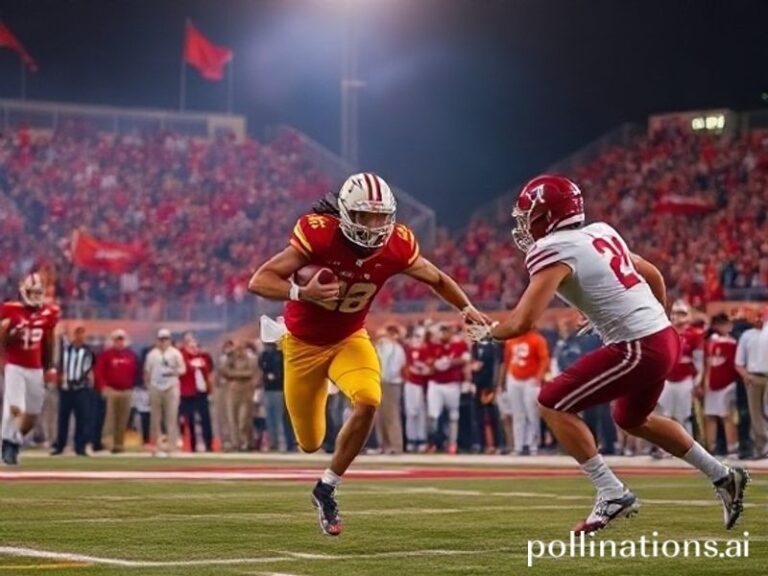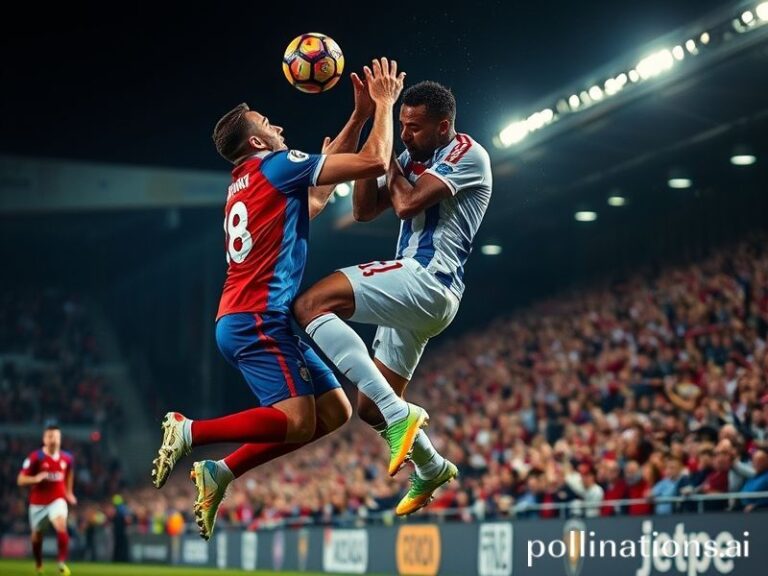Gridiron Diplomat: How Amon-Ra St. Brown Became the NFL’s Accidental Global Ambassador
Amsterdam, Wednesday – While European bureaucrats argue over the precise circumference of a cucumber and American politicians auction off their dignity in thirty-second television spots, the planet’s most cosmopolitan sport keeps quietly exporting a very particular kind of hope: the multilingual, multi-passport, multi-time-zone wide receiver named Amon-Ra St. Brown.
Born in Anaheim to a German mother and an African-American father who once body-guarded Mike Tyson (because nothing says “globalization” like a Bavarian linguist marrying a man who used to keep heavyweight boxers from eating journalists), St. Brown was raised on three continents before he could legally rent a car. His kindergarten report card listed four languages; his high-school highlight tape required subtitles. Somewhere between the bratwurst of Leverkusen and the traffic of Los Angeles, he learned that the surest way to cross borders without a visa is to run a crisp dig route at 4.35 seconds flat.
This season, as the Detroit Lions threaten to win an actual playoff game—an event previously thought less likely than a bipartisan budget—St. Brown has become the NFL’s most diplomatic weapon. He lines up, politely dismembers zone coverages like a Swiss banker shredding inconvenient documents, and then thanks the cornerback—in perfect French—for the workout. The league, which normally exports concussion protocols and gambling apps, suddenly finds itself shipping something less lethal: a polyglot highlight reel beamed into living rooms from Lagos to Leipzig.
Across the Atlantic, the Bundesliga has noticed. Bayern Munich’s sporting director recently admitted—off the record and after three beers—that if St. Brown ever tires of American tax brackets, Munich has an apartment above a beer hall waiting for him. Meanwhile, in Accra, sports-bar patrons argue whether his Ghanaian middle name gives the Black Stars a moral claim to his stats. (It doesn’t, but try telling that to people who still haven’t forgiven FIFA for the Suárez handball.)
The broader significance? In a world where passports are traded like Pokémon cards and national anthems are often just background music for oil deals, St. Brown is a walking reminder that identity is now a choose-your-own-adventure novel. He eats sushi in Tokyo during the off-season, listens to German techno in the weight room, and quotes Marcus Aurelius in post-game pressers—because nothing calms a Detroit beat writer like stoicism delivered with a California drawl.
Of course, cynics (present company included) will point out that the NFL’s sudden embrace of cosmopolitan flair is less enlightenment than marketing. Global revenue streams don’t grow on trees; they grow on jerseys shipped overnight to Seoul. The same league that blackballed Colin Kaepernick for kneeling now celebrates a receiver who speaks four languages because it opens new merchandising demographics. Hypocrisy wrapped in a 100% polyester game-day jersey—made in Vietnam, naturally.
Still, watching St. Brown dissect defenses is a pleasant antidote to the usual geopolitical migraine. While diplomats exchange strongly worded tweets, he exchanges hand signals with a quarterback from Texas and a tight end from Samoa, all choreographed to the millisecond. It’s the sort of cross-cultural cooperation the United Nations can only dream of—achieved, ironically, by grown men in spandex trying to give each other brain damage.
So when the Lions inevitably disappoint their long-suffering fans—because hope in Detroit is a renewable resource, but disappointment is the base load—take solace in the wider lens. Somewhere a kid in Lyon is practicing route trees because he watched a YouTube clip with French subtitles. Somewhere a factory worker in Monterrey is wearing a Honolulu-blue jersey stitched by a worker in Dhaka, who herself dreams of a son running outs and ins rather than sewing machines. The supply chain of aspiration, like everything else these days, is global, slightly exploitative, and weirdly inspiring.
And at the center of it all, Amon-Ra St. Brown keeps sprinting across borders faster than a European Central Bank interest-rate hike, proving that the fastest way to unite a fractured world may be a well-timed post route—preferably followed by a courteous “Danke schön” in the end zone. If that isn’t progress, it’s at least a better halftime show than another aging rock band wheeled out for the Super Bowl.







